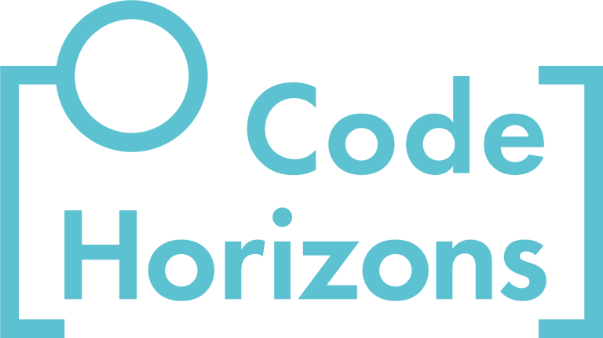Bayesian Analysis for Qualitative Evidence: A Short Course
An 8-Hour Livestream Seminar Taught by Tasha Fairfield, Ph.D.
Qualitative evidence can make vital contributions to social science research that strives for explanation. Diverse kinds of qualitative information, including but hardly limited to interviews, ethnographic observations, news reports, meeting notes, and archival records, provide “clues” that help us adjudicate between alternative explanations, in the same way that a detective goes about figuring out who among a list of plausible suspects committed the crime, how, and why. Yet qualitative studies do not always draw clearly reasoned and well justified conclusions from the evidence presented. Authors often overstate their claims, and as we know from cognitive psychology, multiple biases can lead to faulty reasoning.
Bayesianism is enjoying a revival across many fields, and it offers a powerful tool for improving inference and analytic transparency in qualitative research. Bayesian inference is an intuitive process that begins by assessing prior odds on rival hypotheses, drawing on any relevant initial knowledge we have. We gather evidence and evaluate its inferential weight by asking which hypothesis makes the evidence more expected. We then update to obtain posterior odds on our hypotheses—following Bayes’ rule, we gain more confidence in whichever hypothesis makes the evidence more expected.
This course will provide concrete guidance on how to carry out each step of the Bayesian reasoning process, with applications to case studies and multi-methods research drawn from a wide range of fields. You will learn how to construct rival hypotheses, assess the inferential weight of evidentiary observations, and evaluate which hypothesis provides the best explanation through Bayesian updating. This course aims to include ample discussion, along with exercises and breakout-group opportunities to give you hands-on practice with applying Bayesian techniques.
Starting August 26, we are offering this seminar as an 8-hour synchronous*, livestream workshop held via the free video-conferencing software Zoom. Each day will consist of two 2-hour lecture sessions which include hands-on exercises, separated by a 30-minute break. You are encouraged to join the lecture live, but will have the opportunity to view the recorded session later in the day if you are unable to attend at the scheduled time.
*We understand that finding time to participate in livestream courses can be difficult. If you prefer, you may take all or part of the course asynchronously. The video recordings will be made available within 24 hours of each session and will be accessible for four weeks after the seminar, meaning that you will get all of the class content and discussions even if you cannot participate synchronously.
Closed captioning is available for all live and recorded sessions. Captions can be translated to a variety of languages including Spanish, Korean, and Italian. For more information, click here.
More Details About the Course Content
By the end of the course, you will be able to read qualitative case studies more critically and apply Bayesian reasoning in your own research to make better inferences.
In this short-course, you will learn:
-
- Guidance for crafting clearly articulated mutually exclusive hypotheses.
- Skills for avoiding common cognitive biases when analyzing evidence.
- Skills for considering the most informative kinds of evidence to seek to help determine which hypothesis provides the best explanation.
- Procedures for evaluating how strongly an evidentiary observation favors one hypothesis over a rival.
- An appreciation for the wide range of nuanced and inherently qualitative evidentiary observations that can be valuable for inference to best explanation.
- Prescriptions for assessing how much uncertainty surrounds your conclusions.
- An understanding of how Bayesian reasoning builds on common sense and differs from other commonly-used methodologies, along with the advantages it affords for rational inference, knowledge accumulation, and communicating findings to laypeople.
Computing
This course will not rely on any particular computing package.
Who Should Register?
This course is suitable for researchers from a wide range of different fields, backgrounds, and career stages. No prior experience with qualitative research or Bayesian analysis is needed.
The skills developed in the course will be valuable for anyone who is interested in analyzing qualitative evidence more systematically and more rationally, whether in their professional capacities or while relaxing with a good crime miniseries or murder mystery.
Outline
Part 1: Introduction to Bayesian reasoning
- Fundamentals of conditional probability and Bayes’ rule
- Bayesian principles for inference with qualitative evidence
- Devising mutually exclusive hypotheses to compare
- Evaluating prior odds: your initial view about which hypothesis is more plausible, given your background knowledge
- Identifying evidence: any observation(s) that bear on the relative plausibility of your hypotheses
- Assessing likelihood ratios: to evaluate how strongly the evidence favors one hypothesis over a rival, ask which hypothesis makes the evidence more expected
- Updating: whatever our prior views, we gain more confidence in whichever hypothesis makes the evidence more expected
- Examples and exercises
Part 2: More skills for analyzing evidence and conducting systematic inference
- Analyzing testimonial evidence
- Handling logical dependence
- Log-odds updating
- Quantifying the weight of evidence
- Aggregating the inferential weight from multiple pieces of evidence
- Examples and exercises
- Bayesian advantages in relation to other research methodologies
Reviews of Bayesian Analysis for Qualitative Evidence
“Professor Fairfield is highly skilled at effectively communicating her expertise to an audience that comes from a broad range of backgrounds. She does an extremely good job of teaching the material accessibly, but also deeply.”
Douglas Walker, Oregon State University
Seminar Information
Tuesday, August 26 –
Wednesday, August 27, 2025
Daily Schedule: All sessions are held live via Zoom. All times are ET (New York time).
10:30am-12:30pm (convert to your local time)
1:00pm-3:00pm
Payment Information
The fee of $695 includes all course materials.
PayPal and all major credit cards are accepted.
Our Tax ID number is 26-4576270.

 Back to Public Seminars
Back to Public Seminars